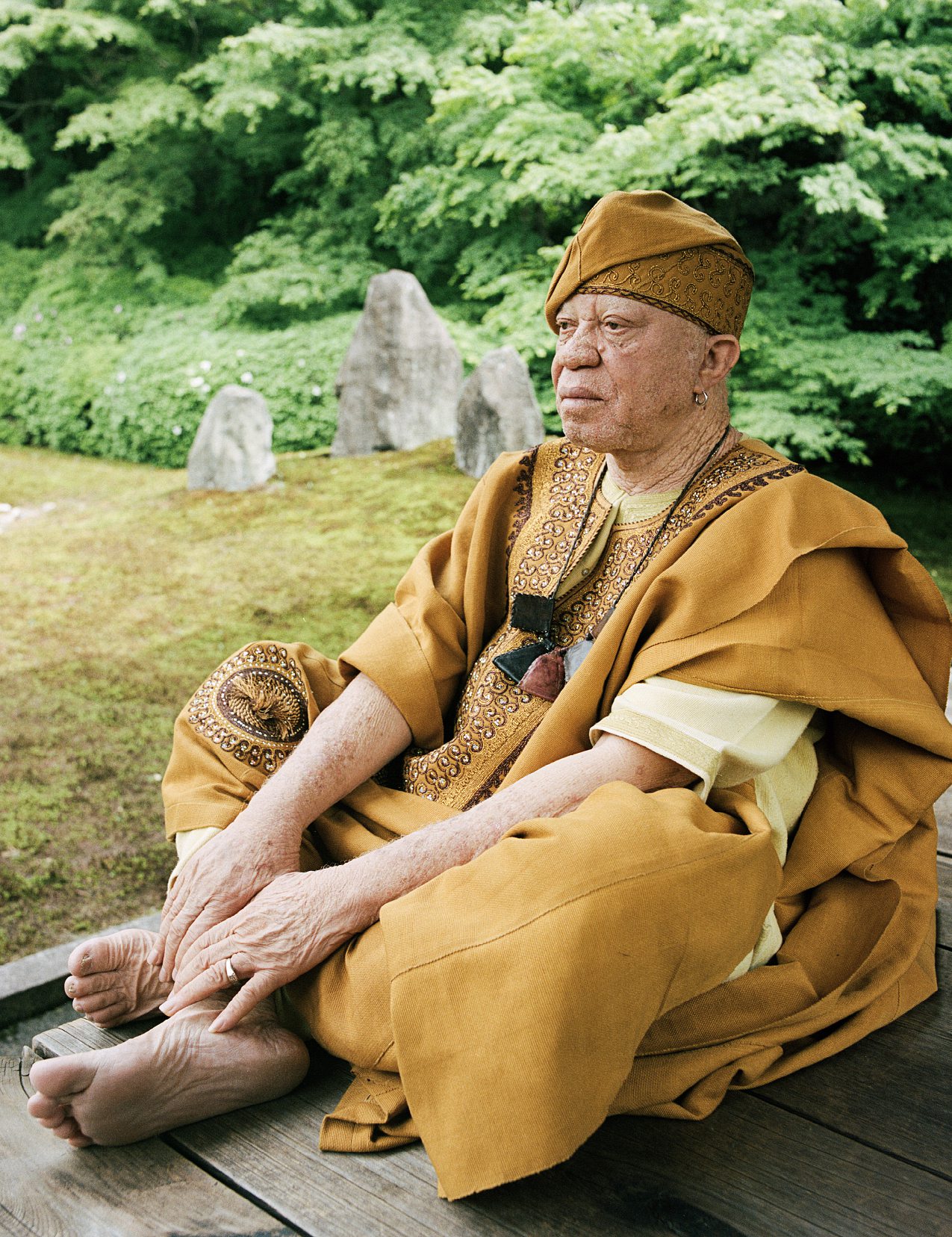Salif Keita
Between four walls
It was in a Japanese hotel room that the legendary Malian singer recorded this new album celebrating his love of the guitar. We met with the legendary musician in Paris.

White tunic embroidered in gold, dark glasses, smiling and humble. Salif Keita meets us in the Radio France green room. He is getting ready to perform a few tracks from his new album, So Kono, on which he covers a handful of previously unreleased tracks, as well as songs that are already well known, like ‘Tassi’, ‘Soundiata’ and ‘Laban’. His voice resonates closely with the strings, sometimes accompanied by Badié Tounkara on the ngoni and Mamadou Koné on percussion. This uncluttered approach is the strength of this album, which confirms the charisma of the singer, a descendant of the illustrious Mandingo ruler Soundiata Keita.
AM: So Kono, «in the house» in Mandinka, is very intimate indeed. Why did you choose to record it alone, or almost alone?
Salif Keita: I've often been asked to show how I compose my songs, which are born when I'm alone with my guitar. And it's only once I've found my melodies that the lyrics come to me... I've always said that the guitar is my first wife. My other half! This complicity is what I wanted to share with So Kono. Re-interpreting these songs also reminded me of the moments when I wrote them, the emotions that often animated me, at home, in my village in Mali, on the banks of the river.
You recorded and produced this album in a hotel room in Kyoto, a deeply spiritual city...

We visited temples and discovered the originality of Japanese culture, which elevates the soul and invites meditation. All the more so because, when I compose, I am truly inhabited by the spirituality inherited from my Mandingo ancestors. When you're an albino and you're ostracised from an early age, which was my case, that belief is precious. Even though albinos are less persecuted today and associations have been set up to fight against this discrimination...
Is music your home?
Yes, it proved to me that I didn't come into this world by chance. That I had to take responsibility for my destiny. And even when I'm far from home, it means I don't feel alone.